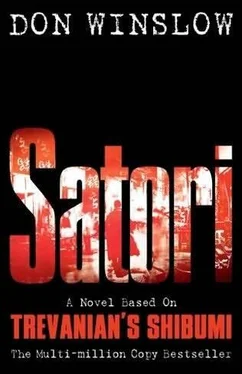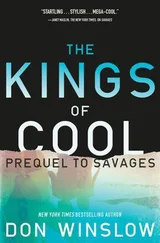Physically exhausted but mentally invigorated when he finished, Nicholai sat on the floor, pulled himself into a rigid meditation posture, and envisioned the plan of the Zhengyici Opera House.
He had the floor plan perfectly in mind, and now he worked from the box Voroshenin had reserved, out the hallway, and down a set of stairs. A left turn would take him into the main part of the theater, then into the lobby and out the main doors. But a right turn at the bottom of the stairs led to another short corridor and a door that would lead to the backstage area.
At that point, he could turn right to go backstage or left into the alley behind the theater.
So there it was, and he mentally walked through the escape route. Out of the box, left down the hallway, down the stairs, right down the hallway, left out of the building. He “walked” it twenty times in his mind before adding the next mental level.
Obstacles.
First would be Voroshenin’s guards, but if he performed the strike properly, they would not know anything was wrong for another crucial minute. But he had to consider the possibility of having to fight his way out. There was no way to know how the guards would be positioned, so that would have to be improvised on the spot. But that was the purpose of kata, to train the body to react instantly to any threat, without the fatal necessity of thought.
So he dismissed the guards from his mind.
The hallway outside the boxes should pose no problems. There might be Chinese police, but if the killing of Voroshenin raised no outcry, he should simply be able to walk past them on his “way to the toilet.”
But he mentally slowed his pace, “walking” casually, not as a man who has just killed, but as one who simply needed to empty his bladder.
He walked down the stairs and took a right. At the end of the hallway was a door to the backstage, and there would almost certainly be an employee of the theater, a doorman, to bar the way of adoring fans.
Killing the man would be easy.
But killing the innocent doorman would be a shameful dishonor, out of the question, so now Nicholai mentally rehearsed a nonlethal blow to the side of the neck, to the carotid artery, to disable but not kill. He threw the strike, lowered the man to the floor, and opened the door.
The next door was just to his left, and he stepped out into the cold night air.
Simple, he thought, then chuckled at his self-delusion.
Simple, if you get within lethal proximity to Voroshenin.
If you perform the perfect strike that renders him quietly dead while still sitting up in his seat.
If the guards notice nothing amiss.
If you don’t have to kill three more men and then fight your way through the Chinese police.
If all of it goes your way, it’s simple and easy, but those are a lot of ifs. Small wonder Haverford had given him a one in a hundred chance of success and survival.
And if not? he asked himself.
If not, then that is your karma, your “joss” as the Chinese would have it, and you will be killed.
Are you prepared for that?
Yes.
Kishikawa’s words came back to him. When one is prepared to die, that is settled. There is then only the action to consider. Think then only of success, because failure will take care of itself.
Nicholai sat for another hour and envisioned the entire operation, step by step, going perfectly. He got up, coaxed hot water from the taps, and bathed. Then he dressed and went down into the lobby, where Chen was waiting to inflict more hospitality on him.
THE ACROBATS WERE wonderful.
Superb athletes, they performed amazing feats of strength, balance, and courage. It all brought back to Nicholai happier childhood days in Shanghai, going to the street circuses and marveling at the performers.
The show tonight was held under a huge tent, dangerously warmed with gas heaters. The floor was pounded dirt and the audience – even the important officials and foreign guests such as Nicholai – sat on rough wooden benches, ate peanuts and tossed the shells on the ground, but it all added to the ambiance.
The other difference was in terms of theme – the acrobats of Nicholai’s childhood had been colorfully dressed as kings, generals, courtesans, monkeys, dragons, and tigers and performed their tricks to ancient folktales. The performers tonight were clad in PLA uniforms and arranged their tricks around heavy-handed political tableaus such as “The PLA Liberates the People from the Evil Imperialists,” or “The Peasants Successfully Struggle Against the Landlord,” or the ever piquant, oh-so-whimsical “Dijuan Factory #10 Produces a Record Annual Output of Ball Bearings.”
Still, the acrobatics were fantastic and entertaining, even wedged into the relentless propaganda. If the costumes lacked color, the performers did not, and Nicholai found himself absorbed in admiration of their skill. They tumbled, did double somersaults, swung from the tops of bamboo poles, balanced on wires, created impossibly high human towers.
“Amazing, aren’t they?” Voroshenin said in French as he stepped over the bench and squeezed between Chen and Nicholai. “Sorry.”
A somewhat sorry-looking man stood behind Voroshenin, and Nicholai noticed that the Russian didn’t bother to offer him a seat. He was clearly an underling of some sort, but not, judging by his spindly frame, a bodyguard.
Nicholai turned and introduced himself. “Michel Guibert.”
“Vasili Leotov.”
“ ‘Dijuan Factory #10’ is one of my all-time favorites,” Voroshenin observed, ignoring the introductions, and Nicholai couldn’t tell if he discerned irony in his tone. Certainly he could discern the vodka on his breath.
“It’s superb,” Nicholai said.
The circus ring became a sea of red, as some of the performers unfurled enormous flags, then turned them flat as other acrobats used them to leap from one flag to a higher one to a higher one, as if they were climbing the sky on the red clouds of dawn. The audience gasped as the final performer reached the pinnacle. Steadying himself with one hand on a skinny bamboo pole, he used the other to pull a final flag from inside his jacket, and waved it as all the actors sang “We Rise Ever Higher on the Wings of Chairman Mao.”
“Soon,” Voroshenin said, “there will be no art, no grace or charm in this country. Only ‘Mao thought.’ It will be a wasteland.”
“Surely you’re having a joke on me.”
“It will be dull as the proverbial dishwater,” Voroshenin added. He tilted his head toward Leotov, still standing over his shoulder. “Dull as this one, if that’s possible.”
Nicholai felt embarrassed for Leotov, slid over on the bench as far as he could, and asked, “Wouldn’t you care to sit down?”
“He wouldn’t,” Voroshenin interjected. “He is as you see him, a post. Besides, if you aren’t bored enough already, you soon would be with him as a companion. His conversation is as vapid as his face, which strains credulity, I understand. I mean, look at the fellow.”
Leotov’s humiliation was palpable, but he said nothing. Then Voroshenin leaned in toward Nicholai and whispered, in Russian, “Your mother was my whore, Nicholai. I rode her like a sled.”
Nicholai felt the insult burn, but he didn’t flinch. “I’m sorry?”
“I’m sorry,” Voroshenin said. “I lapsed into Russian there for a second. One forgets sometimes what country one is in.”
But had there been the slightest blink? Voroshenin asked himself. The slightest glimmer of self-consciousness in the eye?
Nicholai wondered the same thing. He fought to keep the fury off his face as he asked, “But what did you say?”
Читать дальше












